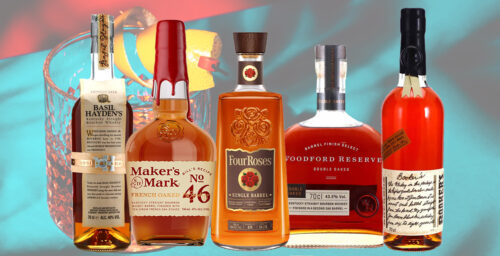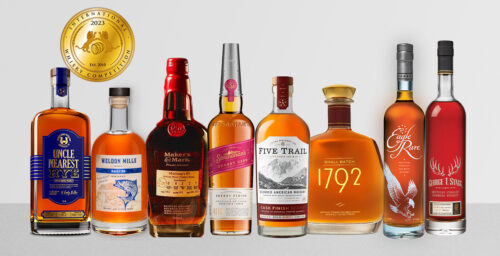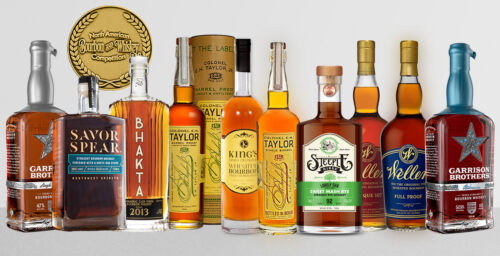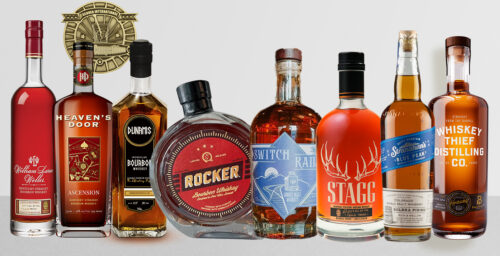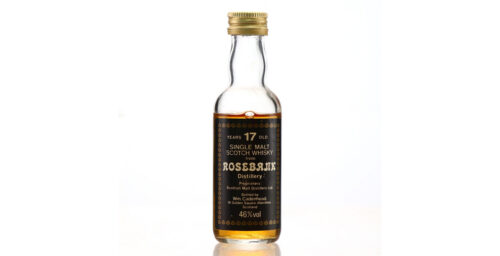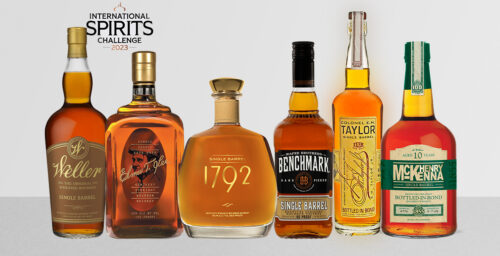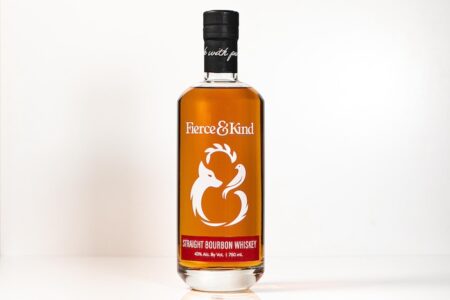Sown, grown and harvested, distilled, matured and bottled on the island of Islay, some bottlings of Port Charlotte single malt embody the essence of its island home.
In 2004, the folks at the Bruichladdich distillery convinced their first growing partner to sow “malting barley” on the island. This would, in turn, inspire many more farmers to join the project, with an average of 18 growers now harvesting between 40 and 50 percent of the distillery’s annual requirements within 10 miles of where it’s then milled, mashed, distilled, matured and bottled.
Given this, the Islay distiller is set to release two new offerings: The Port Charlotte Islay Barley 2013 and the Bere Barley 2011.
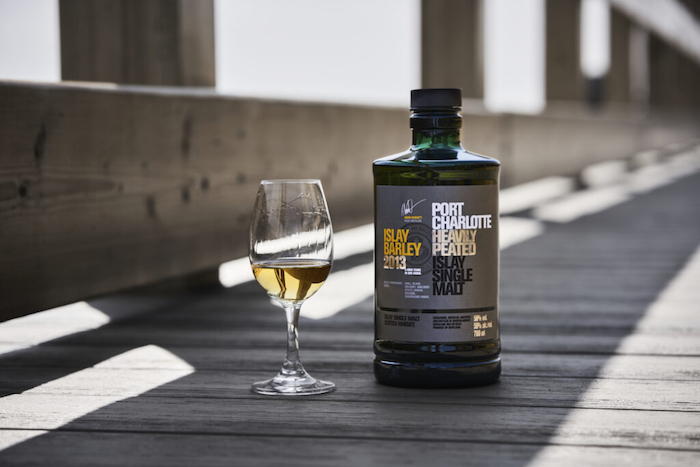
Port Charlotte Islay Barley 2013 is the fourth edition of heavily peated Islay-grown single malt released from the distillery. The farmers, Hunter Jackson, Iain McKerrell, Raymond Fletcher, Mark French, Alistair Torrance, Raymond Stewart and father & son team Donald and Andrew Jones have all worked with the distillery previously.
Their grains would be trickle-distilled through tall, narrow necked stills before being filled into first fill ex-bourbon casks. In its later years, 25 percent of the spirit would be recasked into first fill Pessac-Leognan French wine casks, adding fruit and spice notes.
Port Charlotte Islay Barley 2013, bottled at 100 proof, will replace the Port Charlotte Islay Barley 2012 vintage alongside the permanent release of Port Charlotte 10 and the limited cask exploration release.
Port Charlotte spirit was first distilled in 2001, when Bruichladdich was resurrected after seven years of closure. The single malt whisky is named after the village of Port Charlotte that lies two miles south of Bruichladdich.
Growing barley on Islay is no easy task. Between torrential rain, wild Atlantic winds and grazing geese, being part of the Islay barley project can be a test of will. But the labor proves worthwhile as many of Islay have been able to diversify away from the island’s primary income of fishing and livestock farming.
With the dairy industry hampered by the cost and convenience of supermarket produce, barley growing provides an opportunity to diversify and share in the spoils of a booming single malt industry.
While many on Islay can be proud of a job well done by the entire community, Islay grown barley has benefits when it comes to flavor as well.
Bruichladdich Head Distiller Adam Hannett said lashings of salt spray and a coastal maturation contribute a distinctive marine note to these single malts.
Regarding the new 2013 vintage of Concerto barley raised by seven farmers in 2012, he said in a prepared statement, “There is something magical about how the Islay-grown barley holds the smoke back for a moment until releasing it dramatically on the finish.”
As of this month, the makers of Port Charlotte remain the largest private employers on the island of Islay, with 98 permanent members of staff working between Islay and Glasgow, with 77 based on Islay and an age span of 21–67. Of their senior management, 50 percent are female.
The second new release from Bruichladdich, Bere Barley 11, meanwhile features a heritage variety of barley that never quite reached peak popularity with farmers or distillers, owing to its low yield.
The distillers found that this variety never made the recommended growing list for farmers, and subsequently, the seed fell out of fashion. The ancient barley could’ve been all but lost if it were not for the resurrection mission forged by the Barony Mill with the helping hand of the Orkney College (UHI Agronomy Institute).
Bruichladdich distillers say this 2011 vintage of whisky, distilled from the six-row grain grown on Orkney in the summer of 2010, is a testament to the longevity of the Bere partnership that started back in 2005.
They found that the Bere Barley centered single malt is unique in its layers, providing intense barley-sugar-sweet flavors.
Aged 10 years in oak casks, the Bere Barley 11 comes in at 100 proof.
Official tasting notes are below.
Bruichladdich Bere Barley 2011
- Nose – The nose opens with a bouquet of sunny floral aromas. Geraniums and orange blossom followed by mint and chocolate limes. Next comes malted barley, a citrus tang and apricot jam. There is a creamy richness on the nose; the combination of malty, fruity, citrus and floral notes wrapped in fresh oak is beautifully balanced and has tremendous depth of flavor.
- Taste – On the palate, the delicate nature of this whisky is evident with light hints of chocolate, apricot jam and citrusy, herbal zephyrs. Yet, the texture shows robustness in its viscosity as it settles across the tongue. As it does so, the barley sugar opens up with chocolate lime and fudge. Dried banana chips, vanilla and marshmallow. Apricot jam, gooseberry pudding and malted bread.
- Finish – On the finish, the marine freshness comes through. Salinity on the lips and a stiff sea breeze note speak of the northern islands where the Bere is grown, and the ozone and fruity character on the palate hint at the westerly location of the spirit’s birth and maturation. Barley sugar and green fruit come in on the palate and hold right to the end as the superb texture pulls everything together.
- Character – In our 2010 vintage, there was a succulent peach note that set the tone of the dram. In this 2011, an equally delightful apricot jam style holds the whisky together. There is something unique about the Bere spirit and its tremendous depth of flavor that showcases its complexity. An exploration of provenance and terroir that shows not all barley is equal.
Port Charlotte Islay Barley 2013
- Nose -The nose opens with delicate floral notes of lily and geranium before warm orange zest and dried earthy peat smoke brings body and gravity. Banoffee pie and digestive biscuit come out from behind the peat smoke and carry forward this dram’s malty, fruity character. Cherry coconut and malted barley jostle with apricot and melon. The sweetness of the oak and the outstanding rubbery, peppery phenolic notes are balanced with the fruit and floral style of slow, careful fermentation and distillation.
- Palate – The salinity, the fruit, the light peat smoke, and the sweet oak show their presence in a whirl of complexity. There is texture from the spirit, and its time resting in oak allows a subtle almond note to combine with coconut, caramel, vanilla, and muscovado sugar. The peat smoke in this whisky is as balanced as ever, weaving through the components, highlighting them but not dominating.
- Finish – The smoke, fruit, oak and floral notes melt into each other, and a creamy texture allows melon, peach and cherry to come through before dwindling into the dry embers of peat in the hearth.

